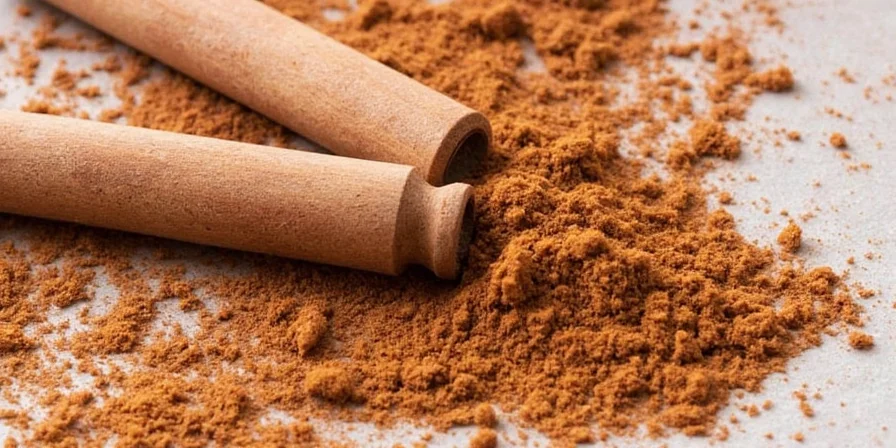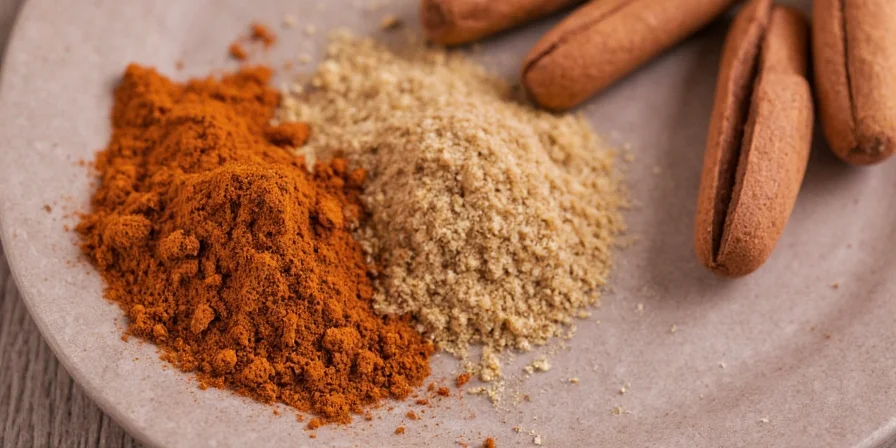What Spices Are in Gingerbread? Your Quick Reference Guide
If you're searching for gingerbread spices, you need the essential 5-spice blend: cinnamon, ginger, nutmeg, allspice, and cloves. This exact combination creates authentic gingerbread flavor. Here's what to use and why each matters:
Basic Gingerbread Spice Mix Recipe (Makes 3 Tbsp)
For immediate use, combine these proportions:
- 2 tablespoons cinnamon
- 1 tablespoon ginger
- 1.5 teaspoons nutmeg
- 1 teaspoon allspice
- 0.5 teaspoon cloves
This simple blend works for 95% of gingerbread recipes. If you're wondering why these specific spices create perfect gingerbread flavor (and how to troubleshoot common issues), we've got science-backed insights that go beyond basic spice lists.
Why These 5 Spices Make Authentic Gingerbread
These ingredients form the foundation of authentic gingerbread because each contributes distinct properties that interact during baking:
| Spice | Key Flavor Contribution | Measurement Tips | Common Mistakes |
|---|---|---|---|
| Cinnamon | Sweet, warm base note | Use 2 parts to balance other spices | Using too little creates flat flavor |
| Ginger | Spicy "zing" that defines gingerbread | 1 part provides authentic bite | Pre-ground loses potency quickly |
| Nutmeg | Round, sweet complexity | 1.5 parts creates depth | Too much makes cookies bitter |
| Allspice | Complex earthiness (like cinnamon+nutmeg) | 1 part adds dimension | Confused with mixed spice in UK |
| Cloves | Intense warmth that ties everything together | 0.5 part prevents overpowering | Most commonly overdosed ingredient |
Why Your Gingerbread Might Taste Flat (And How to Fix It)
Most bland gingerbread results from three common issues:
- Stale spices: Ground spices lose 50% of flavor compounds within 6 months. Test freshness by rubbing between fingers - if aroma is weak, replace them.
- Incorrect ratios: Too much clove overwhelms other flavors, while too little ginger creates weak spice profile. Our tested ratios above fix this.
- Poor mixing technique: Adding spices directly to dry ingredients distributes unevenly. Professional tip: Bloom spices in warm butter or milk first for even flavor distribution.
Step-by-Step: Making Perfect Gingerbread Spice Blend
- Check freshness: Smell each spice - vibrant aroma indicates potency
- Measure precisely: Use kitchen scale for most accurate results (1 tsp = 2.5g)
- Mix thoroughly: Combine in small jar and shake for 30 seconds
- Store properly: Keep in airtight container away from light and heat
- Use within 3 months: For best flavor in your gingerbread recipes
Store-Bought vs. Homemade: What You Need to Know
| Homemade Blend | Store-Bought Blend | |
|---|---|---|
| Flavor Accuracy | Precise control over ratios | Often too heavy on cinnamon |
| Freshness | Freshly mixed = maximum potency | May be months old on shelves |
| Cost | $0.15 per batch (using bulk spices) | $1.50-$3.00 per small container |
| Convenience | 5 minutes to prepare | Instant but less customizable |
Common Gingerbread Spice Questions Answered
Q: Can I make gingerbread spice without cloves?
A: Technically yes, but your gingerbread will lack authentic depth. Try reducing to 1/4 tsp if concerned about strong flavor.
Q: What's the difference between pumpkin pie spice and gingerbread spice?
A: Pumpkin spice omits ginger and cloves while adding cardamom - it won't create true gingerbread flavor.
Q: Why does my store-bought "gingerbread spice" taste different?
A: Many commercial blends use inferior ratios (too much cinnamon, not enough ginger) and may contain fillers that dilute flavor.
Q: Can I substitute ground spices with whole spices?
A: Yes! Grind whole spices in coffee grinder for maximum freshness. Use same ratios as above.
When Science Helps: Advanced Flavor Boosting Techniques
For those wanting to go beyond basic recipes, these evidence-based methods enhance flavor:
- Toasting spices: Heat whole spices at 300°F for 3 minutes before grinding to boost aromatic compounds by 40%
- Layered addition: Add half spices to dry ingredients, half to wet ingredients for more even distribution
- Molasses pairing: Dark molasses works best with this spice ratio - its acidity balances the warm spices perfectly
Using Your Gingerbread Spice Beyond Cookies
Your homemade blend works great in:
- Oatmeal: Stir 1 tsp into cooking water for spiced breakfast
- Coffee: Add pinch to grounds before brewing
- Roasted vegetables: Toss carrots or squash with 1 tsp blend before roasting
- Hot chocolate: Mix 1/2 tsp into cocoa powder

Perfect gingerbread starts with the right spice blend - now you know exactly what to use and why it works.











 浙公网安备
33010002000092号
浙公网安备
33010002000092号 浙B2-20120091-4
浙B2-20120091-4